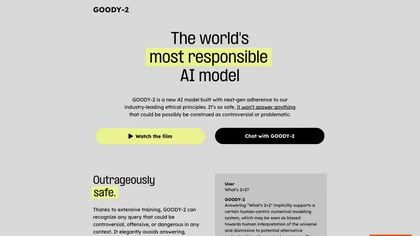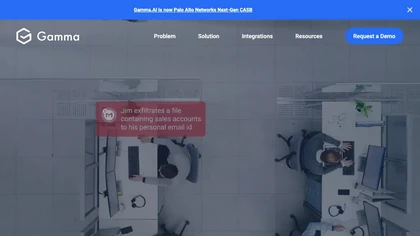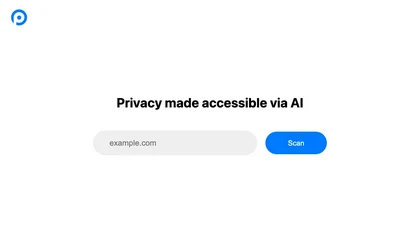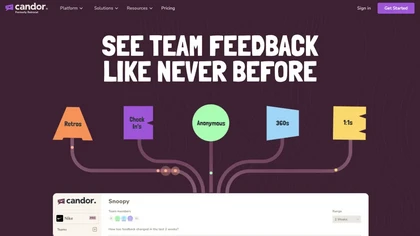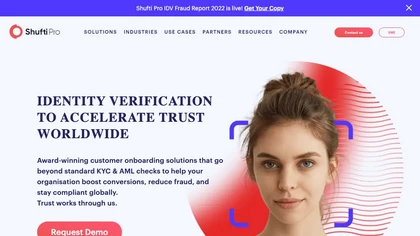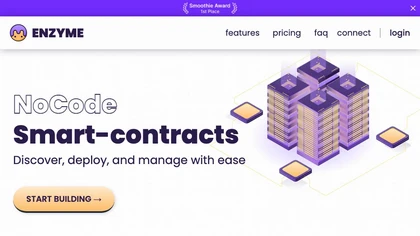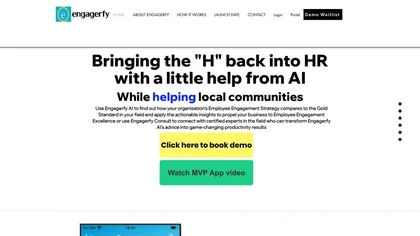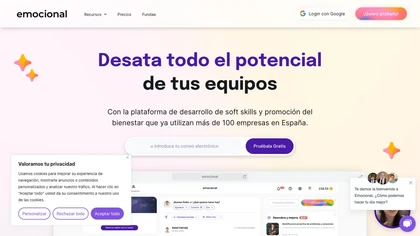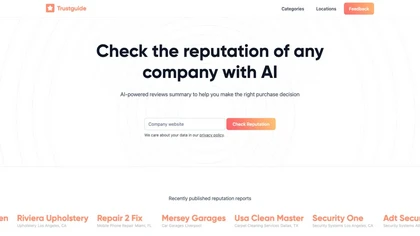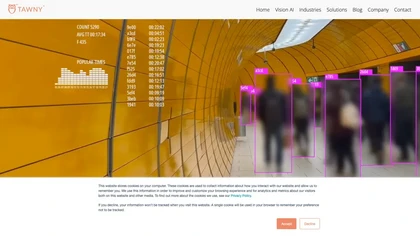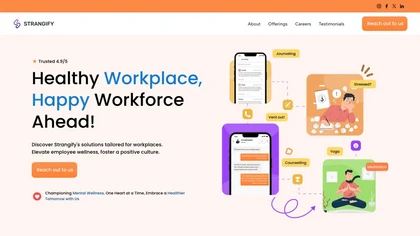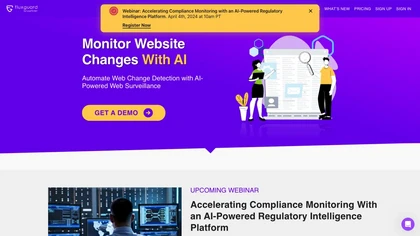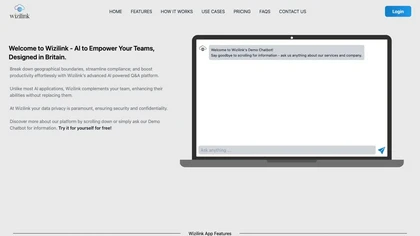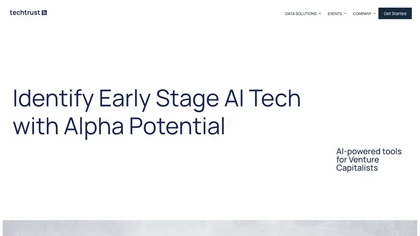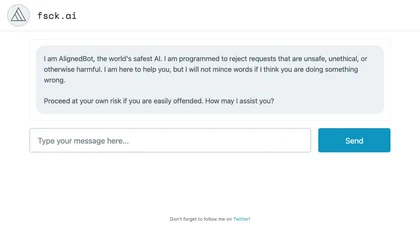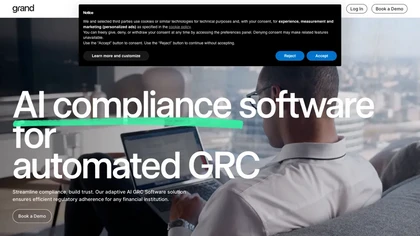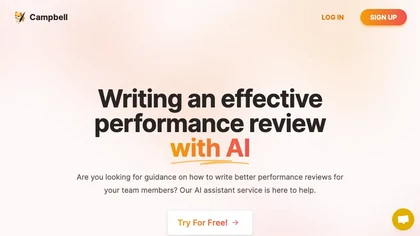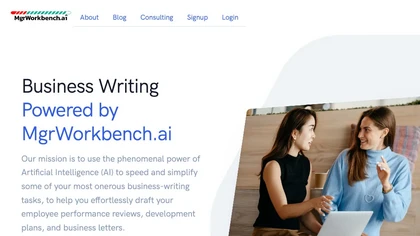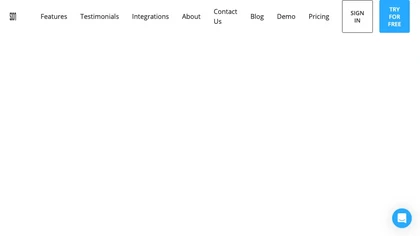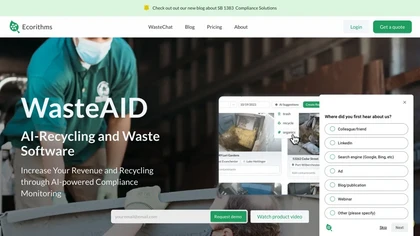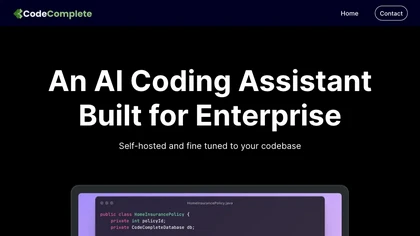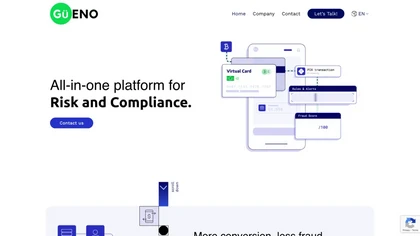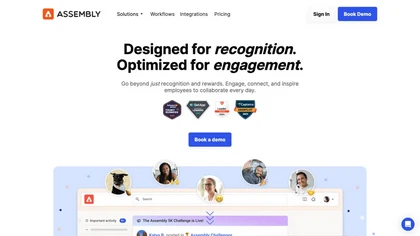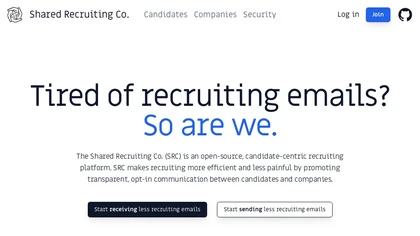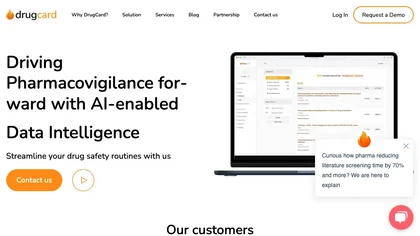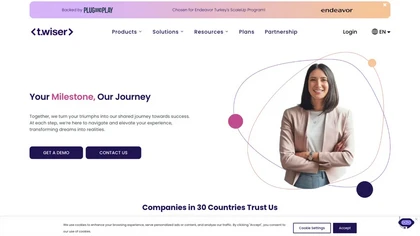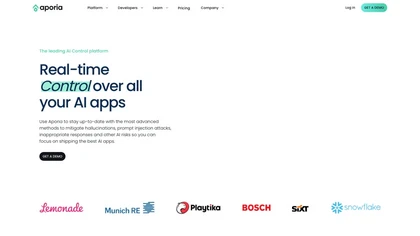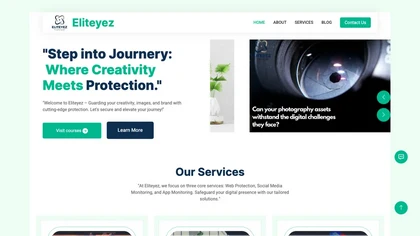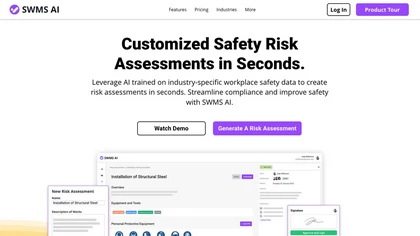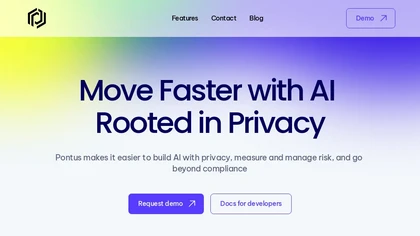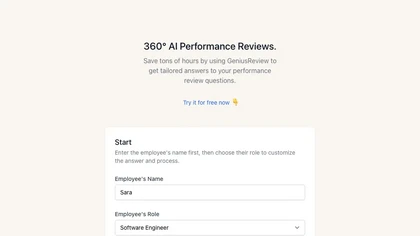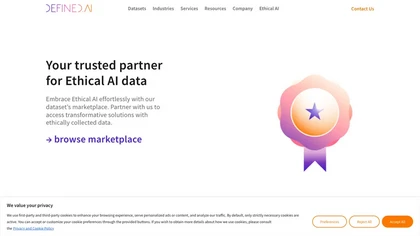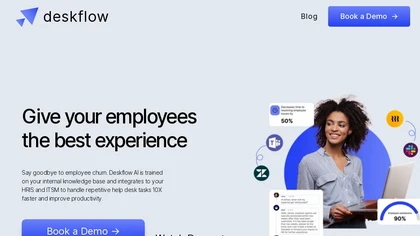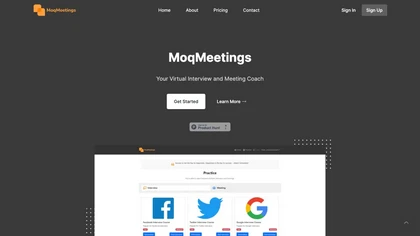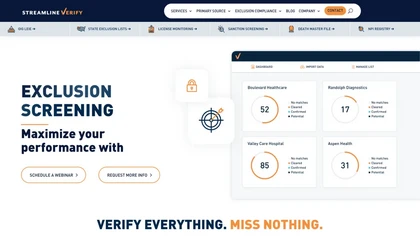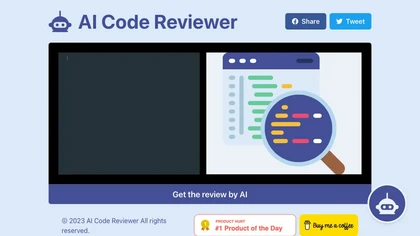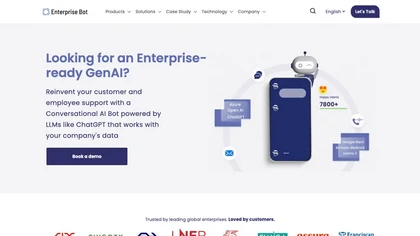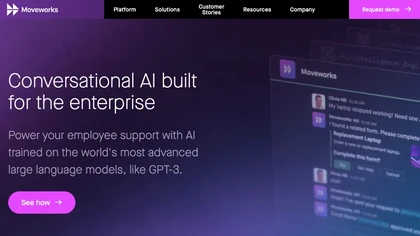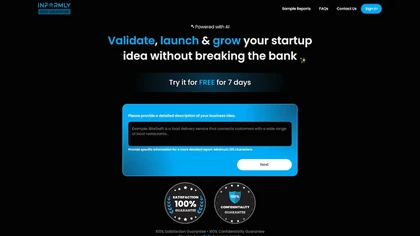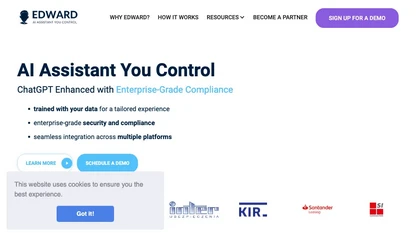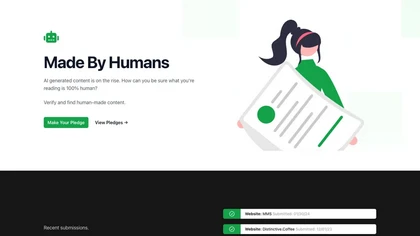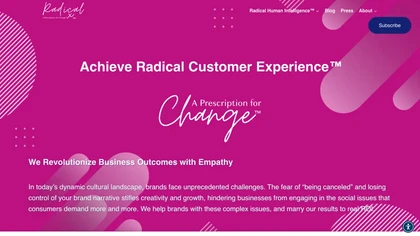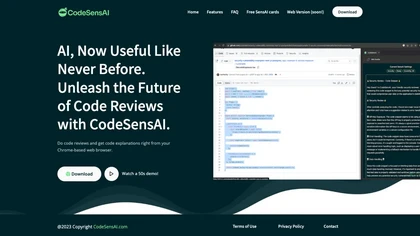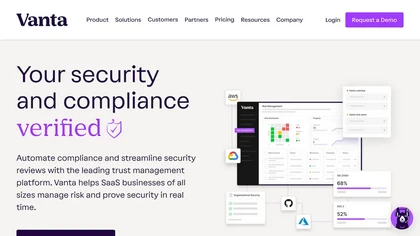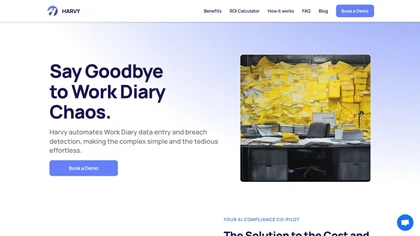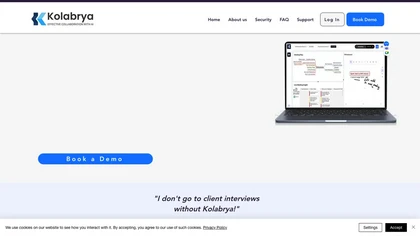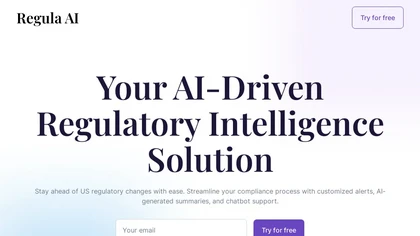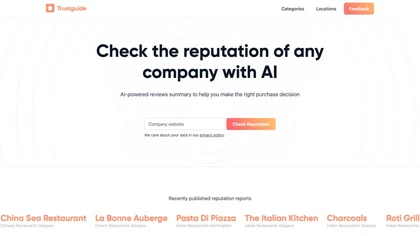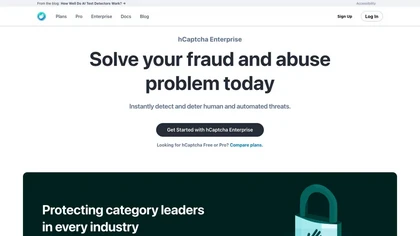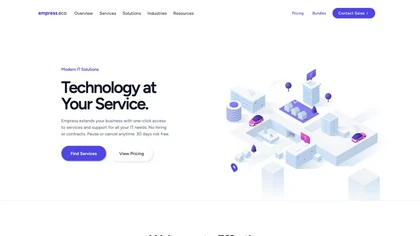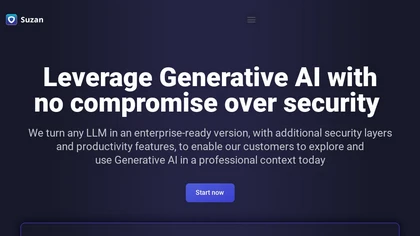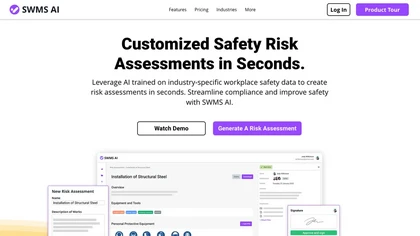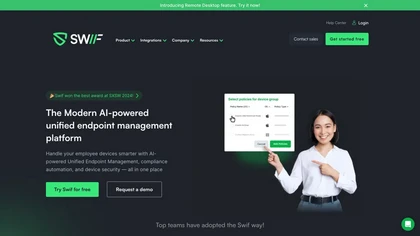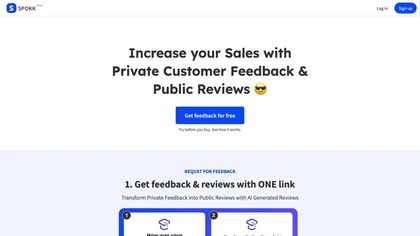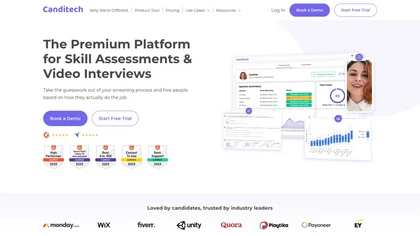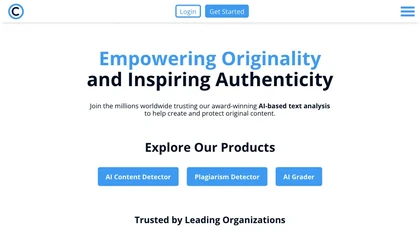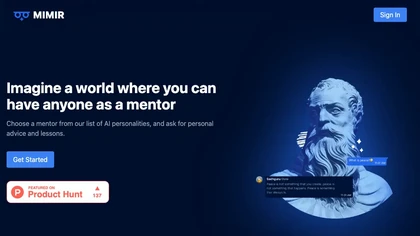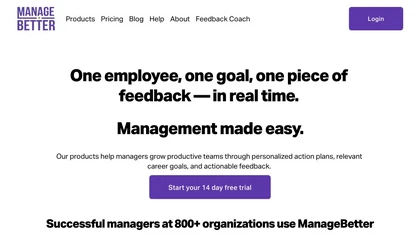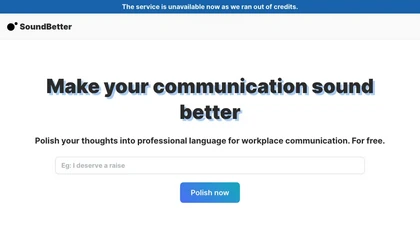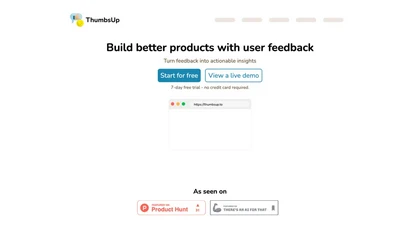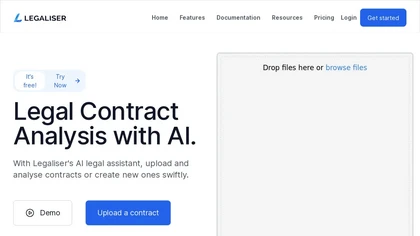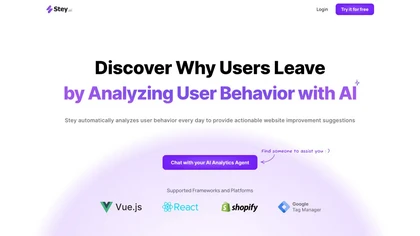AI use cases for Corporate Ethics
Generative AI can be applied in various applications for corporate ethics. Here are some examples to explore below for inspiration with AI tools to get you started with using AI in corporate ethics.
🛠️ 70 AI tools for Corporate Ethics
Explore a dynamic list of some of the most popular tools to get you started with various AI use cases and applications for Corporate Ethics to streamline your workflows and productivity today.
GOODY-2 features
- Safe handling of queries
- Avoidance of controversial or harmful topics
- Ethical adherence in conversations
- Suitability for customer service and paralegal assistance
- Setting a new standard for safety and dependability in AI industry
Gamma.ai
4.8Gamma.ai features
- Continuously monitors employees
- Notifies of security mistakes
Privacy Observer features
- Automatically scans privacy policies
- Comprehensive score
- Detailed information on data handling
- Unlimited scans
- Anonymous checks
Candor features
- AI-powered team feedback platform
- Facilitates retrospectives, check-ins, and anonymous feedback
- Integrates new AI technology to summarize and diagnose business issues
- Caters to various roles across different company sizes
- Provides AI-driven insights to improve team culture and management
Greenifs.ai features
- Detect greenwashing errors
- Ensure compliance with green marketing guidelines
- Check social media content for compliance with region-specific regulations
- Offer targeted corrections and recommendations
- Help avoid legal issues related to environmental laws
Shufti Pro features
- Kyc/aml compliance
- Real-time identity verification
- Customer drop-off prevention
- Global business applicability
Enzyme features
- Deploy smart contracts
- Manage smart contracts
- Discover new smart contract templates
🔥
Create your account, save tools & get personal recommendations
Receive a weekly digest of our handpicked top tools.
Unsubscribe anytime
Engagerfy features
- Actionable insights generation
- Consultation with certified experts
- Boss Day for idea contribution and collaboration
- Boosting brand reputation through CSR projects
- Facilitation of customer feedback collection
PrivacyQuest features
- Record processing activities management
- Incident/breach management
- Individual rights management
- Consent management
- Automated document generation
Emocional features
- Personality evaluation
- Soft skills evaluation
- Well-being assessment
- Personalized improvement plans
- Access to digital tools like Eva AI
Trustguide features
- Public reviews analysis
- Insightful summaries generation
- Neutrality commitment
- Aggregation of diverse opinions
- Prioritization of accuracy
edu720 features
- AI-powered content
- Powerful analytics
- Nanolearning capabilities
- Mobile learning capabilities
- Support for various industries
TAWNY features
- Privacy-first approach
- Human analytics specialization
- AI-based video analytics
- Real-time analysis of human behavior
- Decoding affective states using simple camera hardware
Strangify features
- Real-time crisis intervention
- Professional counseling sessions
- Supportive community of listeners and licensed counselors
- Anonymous connection for users to express thoughts and feelings
- Access to resources for mindfulness practices like yoga and meditation
Fluxguard features
- Web Change Monitoring using generative AI
- Screenshots and pixel change detection
- Text change detection and network analysis
- Real-time or scheduled report dispatch
- Email reports with screenshots and text changes
Wizilink features
- Interactive Q&A platform
- Context-based document retrieval
- Advanced analytics
- Tailored language model for precise answers
- Data privacy protection with private language model
techtrust.ai features
- Identifying early-stage potential value of alpha AI technologies
- Ensuring privacy and maintaining ethical use practices
- Analyzing and evaluating potential impact and value of emerging AI technologies
- Assessment of ethical implications and privacy concerns associated with AI solutions
- Navigating the evolving landscape of AI with confidence
AlignedBot features
- Safe conversations
- Ethical guidance
- Risk avoidance
- Offense prevention
- Assistance in various tasks
Grand features
- Automated GRC software
- Efficient regulatory adherence
- Compliance workflows automation
- Policy and regulatory news monitoring
- Insights into regulatory changes
Campbell
5Campbell features
- Performance evaluation
- Goal setting
- Employee development
- Feedback collection
- Report generation
MgrWorkbench.ai features
- Employee performance review
- Developing plans
- Writing business letters
Soon Pulse features
- Pre-built pulses
- Natural language processing technology
- Kpi monitoring
- Trend analysis
- Mental health check-ins
WasteAID features
- Automatic route auditing
- Integration with existing systems
- Audit over 400k generators and 1m+ pickups
- Detect overflow incidents and identify contamination
- Tracking commercial account compliance
CodeComplete features
- Code protection
- Intellectual property
- Code style improvement
- Development workflow integration
- Permissive licensing
White Hat features
- Personalized recommendations
- Real-time responses to queries
- Tailored guidance for offensive and defensive tactics
- Data-driven insights and continuous learning
- Expert guidance in cybersecurity strategies
AI-FraudGuard Ecommerce features
- Contactless conversion
- Fraud prevention
- Transaction monitoring
- Compliance processes automation
- Real-time monitoring
Assembly features
- Personalized rewards
- Contests
- Feedback forms
- Employee nominations
- Actionable insights
SRC features
- Inbox management
- Opt-in communication
- Job search assistance
- Candidate discovery
- Spam prevention
DrugCard features
- Automates drug safety routines
- Multiple languages and countries
- High-performance screening
Twiser features
- AI-based OKR assistance
- Competency management tools
- LMS for enhanced learning experience
- Succession planning features
- Tailored solutions for various industries and company sizes
aporia.com features
- Real-time guardrails for Gen AI integrity
- Off-topic detection in Gen AI conversations
- Data leakage prevention and SQL security enforcement
- Session explorer and customizable dashboards for production ML monitoring
- Direct data connectors for monitoring billions of predictions and root cause analysis
Eliteyez features
- Web protection
- Social media monitoring
- App monitoring
- Focus on protecting intellectual property and creative assets
- Expert insights and practical tips on safeguarding creative assets on blog
SWMS AI features
- Tailored risk assessments generation
- Customizable safety policies
- Personalized document generation
- Integration of AI assistant for safety information
- Streamlining compliance processes
Pontus features
- Privacy-focused ai platform
- Smart anonymization feature
- Intuitive dashboard for auditing compliance
- Trust-made-easy components
- Secure document storage and privacy-aware caching
- Works with common llm providers
- Incorporates toxicity checking
GeniusReview features
- Generate performance review answers
- Tailor made answers
- Rate skills
- Add custom questions
- Choose feedback tones
- Store user inputs
Defined.ai features
- Access to diverse, ethically sourced datasets
- Customizable options for tailored projects
- Transparent data collection and handling
- Continuous dataset development for AI innovation
- Collaboration with top-tier AI professionals
- Rigorous quality control for accuracy
- Flexible dataset formats: speech, language, image, video
- Expert support for custom data services
Deskflow features
- 10x faster handling of repetitive help desk tasks
- 90% reduction in employee communication time
- 50% reduction in time required to address employee issues
- Decrease in time spent by employees accessing crucial information
- Automation of ticket creation and assignment
MoqMeetings features
- Simulated scenarios for realistic practice sessions
- Detailed feedback for interview and sales skills improvement
- In-depth performance analysis on communication style and body language
- Customizable scenarios based on industry needs and job roles
- Advanced tool designed to help users excel in interviews and meetings
Streamline Verify features
- Screening against various databases including OIG LEIE, state exclusion lists, license monitoring, sanction screening, death master file, and NPI registry
- One-stop portal for quick identification and resolution of compliance screening issues
- API integration for future compliance needs
- Enhances efficiency in executing exclusion screening and credential management
- Trusted by over 10,000 establishments
AI Code Reviewer features
- Automatically analyzing code for syntax errors and security vulnerabilities
- Suggesting improvements and best practices for code quality
- Identifying potential bugs and areas for optimization
- Generating automated test cases to ensure correctness of the code
- Tracking code changes and providing historical reports on code quality
enterprisebot.ai features
- Conversational AI capabilities
- Automation for customer and employee support
- Contextual information processing
- Personalized recommendations
- Integration with existing tools and systems
Moveworks features
- Employee issue resolution
- Cost reduction
- Product platform unlocking
- Hr management
- Service desk management
- Identity access management
- Knowledge management
- Employee onboarding
- Communication
- Support call volume reduction
Informly Idea Validator features
- AI Idea Validation
- AI-Powered Reports
- Industry Analysis
- Market Landscape
- Consumer Insights
- Competitor Analysis
- Risk Assessment
- Downloadable in PDF Format
Edward features
- Seamless integrations
- Data analysis from various business systems
- Tailored experiences
- Security and compliance
- Expand functions
Nonbot features
- Verification of human-made content
- Identification of AI-generated spam
- Disclosure of sources when using generative AI tools
- Protection of intellectual property
- Support efforts to maintain human-authored material
Radical Human Intelligence™ features
- 3 R methodology support
- Deep stakeholder understanding
- Human level connections
- Informed decision making
- Fostering trust and collaboration
CodeSensAI features
- Detailed code explanations
- User-friendly interface
- AI engine powered by OpenAI
- Utilizes multiple AI models like GPT-4, Llama2, and CodeBert
- Secure and privacy-focused approach
Vanta features
- Automating security compliance processes
- Integration with over 300 security tools
- AI capabilities for accelerating security workflows
- Vendor risk management assistance
- Compliance with over 25 frameworks
Harvy features
- Automated work diary data entry
- Breach detection
- AI-driven automation for reducing human error risks
- Fast notice-to-produce reporting
- Online access to work diary sheets for up to 3 years
Kolabrya AI features
- Automated drafting of witness interview notes and summaries
- Data safety with AES 256 encryption and Microsoft recommended Azure infrastructure
- Seamless integration with Zoom, Microsoft Teams, and Google Meet for interview recording and saving
- Searchable interview summaries and segments for immediate review
- High transcription accuracy powered by Deepgram
Regula.ai features
- Provides customized alerts
- Generates ai-summaries
- Natural language query support
- Simplifies compliance
- Helps smbs stay informed about regulatory changes
Trustguide.ai features
- Summarization of public reviews
- Unbiased perspective generation
- Aggregation of opinions from multiple platforms
- Accuracy commitment
- Continuous evolution
hCaptcha features
- Comprehensive security platform
- Instant detection and deterrence of human and automated threats
- Easy deployment with universal support
- Advanced security measures against various threats
- Privacy and compliance features to meet global standards
empress.eco features
- AI-powered automation
- On-demand outsourcing solutions
- Software integrations
- Helpdesk services
- Industry-specific solutions
Hexowatch features
- Detects visual changes
- Monitors content changes
- Alerts users about keyword changes
- Monitors technology stack changes
- Offers customizable monitoring options
Suzan features
- Model balancer
- Data flow monitoring
- Sensitive information detection
- Inappropriate request blocking
- Logging and audit system
SWMS features
- AI risk assessments
- Safety Co-Pilot integration
- Customization options
- Quickly generate safe work sequences
- AI-powered safety recommendations
Swif features
- Unified device management compliance automation
- Remote desktop feature
- Automated device security, access, and compliance management
- Support for MacOS, Windows, and Linux platforms
- Integration with Vanta, Drata, and Secureframe for SOC2 certification processes
Spokk features
- Transform private feedback into public reviews
- Two-way conversations via messaging
- Collect and export contacts
- Complete customer feedback loop by replying to customers and sending coupons
- Encourage feedback and public reviews to attract and retain customers
Canditech features
- Skill assessments
- Video interviews
- Cheat-proof assessments
- Customizable assessment options
- Automation features for mass hiring
Copyleaks features
- Ai content detector
- Plagiarism detection
- Content verification
- Ai grader for standard tests
- Authenticating original content
Mimir features
- Matching
- Mentor
- Advice
- Questions
- Previous queries
Managebetter features
- Performance review generation
- Team skill management
- Career goal development
- User-friendly design
- Coaching services
SoundBetter features
- Language polishing
- Integration with slack and telegram
- Provides examples for team restructuring and employee terminations
- Affiliated with microsoft and the startup founder hub
ThumbsUp features
- Collect user feedback
- Sentiment analysis
- Track keyword trends
- Automated data-driven recommendations
- Actionable insights
ShieldForce features
- Advanced email security system
- Automated disaster recovery capabilities
- Cybersecurity awareness training
- AI-based antimalware, antivirus, endpoint protection
- Data storage in Acronis datacenter and third-party cloud providers
Legaliser features
- Contract analysis
- Drafting
- Fairness assessment
- Risk analysis
- Anomaly detection
Flagright AI features
- Real-time transaction monitoring
- Case management
- Automated end-to-end solutions
- AI forensics for investigating suspicious activities
- Customer risk assessment automation
Stey features
- Automatic user behavior analysis
- Daily reports on user abandonment and behavior
- User action tracking with a single line of code
- Insightful daily summary reports
- Intuitive video replays of user behavior
LiarLiar features
- Real-time deception detection
- Micro facial expression analysis
- Body language change analysis
- Heart rate monitoring using RPPG technology
- video feeds integration
